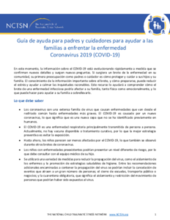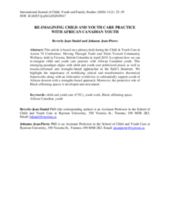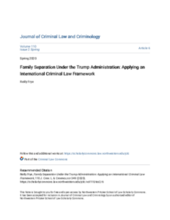Displaying 861 - 870 of 2503
Esta infografía explica los conceptos básicos de lo que es COVID-19 y lo que puede significar para los niveles de estrés en niños como en adultos que los cuidan.
Este recurso lo ayudará a comprender cómo el brote de una enfermedad infecciosa podría afectar a su familia, tanto física como emocionalmente, y lo que puede hacer para ayudar a su familia a sobrellevarlo.
This article explores how we can re-imagine child and youth care practice with African Canadian youth.
The U.S. Center for the Study of Social Policy (CSSP) is working to create resources designed to give a voice to children, youth, and families at most risk during the COVID-19 crisis. This clearinghouse is a collection of all of their resources to date.
This webpage from the Center on the Developing Child at Harvard University features a list of links to national and international resources that can help with a variety of concerns related to the COVID-19 pandemic.
This webpage from the Center on the Developing Child at Harvard University lists some simple, free activities to help support a child’s healthy development during the COVID-19 crisis.
These additional considerations are intended to provide guidance for a range of child care programs that remain open, and should be used in conjunction with CDC’s guidance for administrators of child care programs and K-12 schools.
This resource from Save the Children US features tools and tips for parents, caregivers, teachers and all those who care about children in crisis.
This resource from the U.S. National Child Traumatic Stress Network will help you think about how an infectious disease outbreak might affect your family—both physically and emotionally—and what you can do to help your family cope.
This Comment will propose a theoretical international criminal law response to the family separation that occurred in summer 2018.




